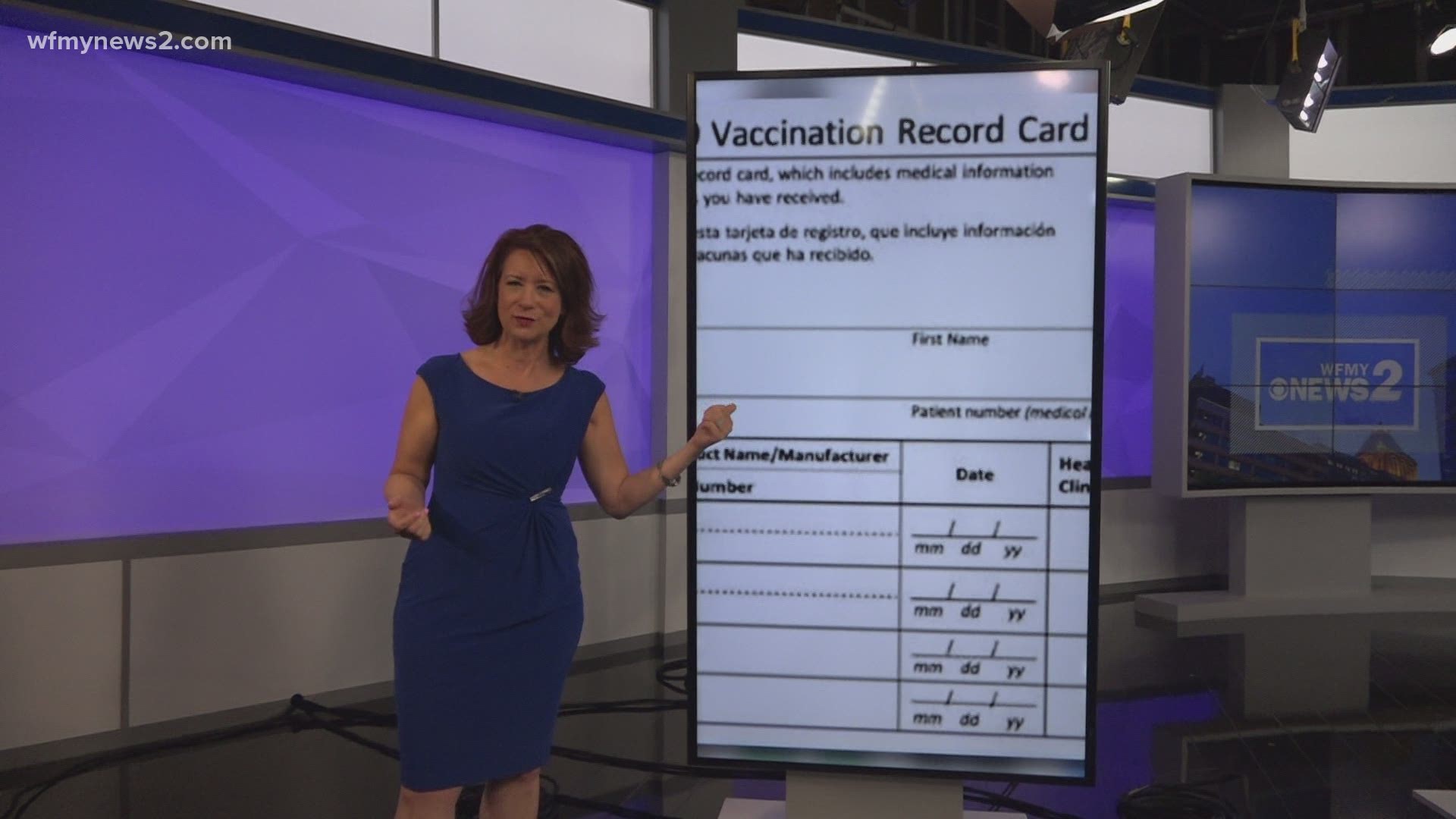GREENSBORO, N.C. — It’s the little white card that’s beginning to bring a sense of normalcy to millions of us: the COVID-19 vaccination record card. Now that you have one or will likely get one soon, Consumer Reports explains what to do with it to protect your personal health information.
"The most important info on the card is the drug and lot numbers. They allow the manufacturers to track where and when different batches were made to better trace and coordinate a response if contamination or other problems are detected," said Kevin Loria, Consumer Reports Editor.
The experts differ on whether or not you should laminate your card. Some say to do it to protect the card, others say, you might need a booster and won't be able to add the card if it's laminated.
Whatever you choose, store the card where you keep other important documents like your passport and birth certificate. You can make a photocopy to carry with you, or take a photo of the front and back-- just don't post it!
But what happens if you lose your card? Don’t panic. Contact the location where you got your shot. It keeps a record of everyone vaccinated there and files it with your state’s immunization registry.
You can find a list of state health department immunization registries and contact details on the website of the Centers for Disease Control and Prevention.
In NC, chances are you got an email about the NCDHHS vaccine portal after you got your shot. It lists a username so you can set up a password and eventually you can get to log in to the site.
When are registered and you put your info in, go to the dashboard and you’ll find your name, what day you got your vaccine, and where.
CR says that digital vaccine passports are a fast-developing option, so if travel is in your plans, you’ll want to look into what documents or apps might be required.
You may need more than one app depending on what you’re trying to do.

